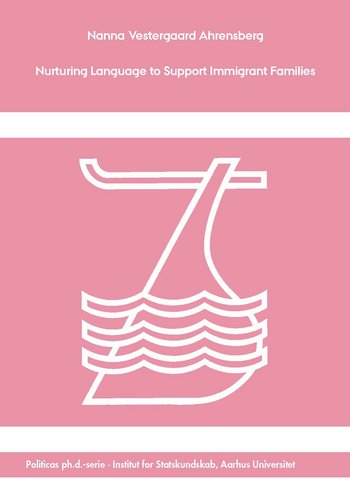Nanna Vestergaard Ahrensberg
Nurturing Language to Support Immigrant Families

The question about how societies can accommodate the growing cultural and linguistic diversity and help immigrant families integrate into society is important and timely in many Western countries. Selective acculturation has been presented as a promising pathway for immigrant integration in the American migration literature. This seminal theory has significantly advanced our understanding of immigrant integration by highlighting the benefits of children of immigrants maintaining ties to their cultural origin while adopting majority society norms. However, the theory’s applicability beyond North America, translation of its propositions into societal interventions, and their practical implementation have received less attention. The dissertation addresses this gap by examining whether and how societal support of cultural resources stemming from immigrant families’ first language can facilitate their integration. This is investigated in a systematic literature review, in-depth qualitative interviews, a survey experiment, and a series of field experiments in Western Europe. The four papers in the dissertation reveal a strong connection between language, families’ self-understanding, and enhanced well-being when language is addressed as an asset in school and society. Minority families, their teachers, and majority members in the same public schools endorse such language support, which suggests that debates on accommodating diversity may not be so contentious in practice. However, the dissertation also identifies substantial practical challenges in implementing such interventions at scale, regarding low uptake despite families and teachers’ declared and revealed interest. A critical next step is to concentrate efforts on implementation to fully realize the potential of such interventions.
![]() Ophavsretten tilhører Politica. Materialet må ikke bruges eller distribueres i kommercielt øjemed.
Ophavsretten tilhører Politica. Materialet må ikke bruges eller distribueres i kommercielt øjemed.